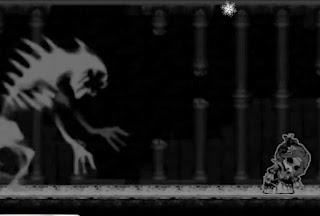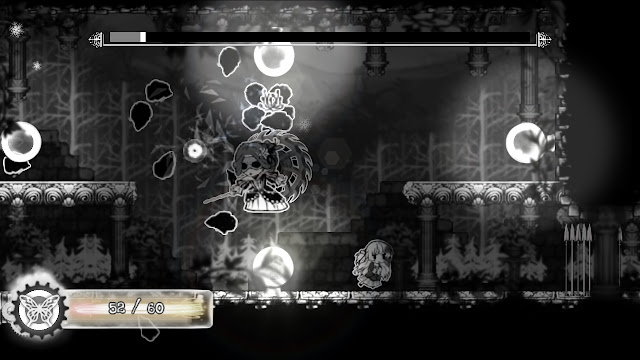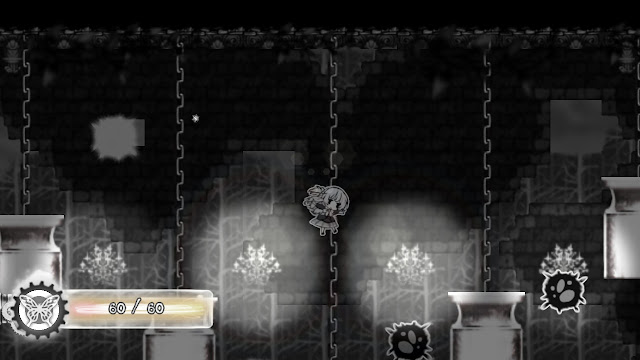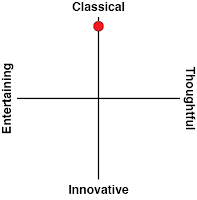Naveah tries to channel the same kind of melancholic mood and challenging puzzle-platformer action that drove the likes of A Rose In The Twilight and The Firefly Diary. It’s nowhere near as robust or evocative as NISA’s own efforts, but this game is not without its charm.
The game uses a stunning black and white aesthetic, for a start (I am always on-board with high-contrast black and white), and has a fairytale-like theme to it. You play as a girl, who enters a magical tower to try and find light for her village, which has been plunged into darkness. On releasing a butterfly that creates light, the queen of the night locks the girl in the tower. Now, working with the butterfly, the girl needs to find an escape before the darkness consumes her.
Then, as she does, she discovers that the village has been consumed by the darkness and its people turned to shadows. Working on the assumption that the village might come back if she undoes what she did, the girl then heads back into the tower to replace the butterfly.
Nevaeh is a game of contrasts and polarities. The name itself suggests this – “Nevaeh” is “heaven” spelled backwards – and it gives you a sense of the kind of dark purgatory this game’s themes look to explore. The core puzzle mechanic works around using light (summoned via the butterfly) to illuminate parts of the level, which might make helpful things appear (platforms, jumping assistance), or harmful things disappear (things like saw blades). The light butterfly is only active for a short time before disappearing and needing to be re-summoned, but it’s possible to light globes and other objects that stay after the butterfly has gone.
Nevaeh’s biggest problem is that it asks for some very precise platforming at times, and this is a little at odds with its melancholic mood. NISA’s aforementioned titles were certainly challenging, but they didn’t rely on pixel-perfect platforming to anywhere near the same degree. The little girl at the heart of Nevaeh is nimble and responsive enough, but this approach betrays a lack of confidence on the part of the developer. They’ve actually got some really nice puzzles in Nevaeh, so why not allow players to simply celebrate their successes in solving those puzzles? Why undermine them by shifting focus to the gamey skills over and over again?
The game’s also not nearly as hard-hitting as it should be to be truly memorable. For example, A Rose In The Twilight haunted me, and to this day I can instantly call to mind several key scenes that I found particularly high impact. Nevaeh is much more game design-orientated, meaning that while the levels and puzzles are well made enough, there’s nothing in here that will be memorable in the long term.
Nevaeh is easy-playing stuff. It takes familiar, comfortable genre conventions and splices them together in a way that is imminently playable. With such a strong, compelling art style it would have been nice to see the developers push the artistry a little further, either to subvert or confirm the fairytale themes in a compelling way, but you’re not going to regret your time playing this one. Not by a long shot.
Editor-in-Chief
Find me on Twitter: @mattsainsb
The critic was provided with a copy of this game for review.











